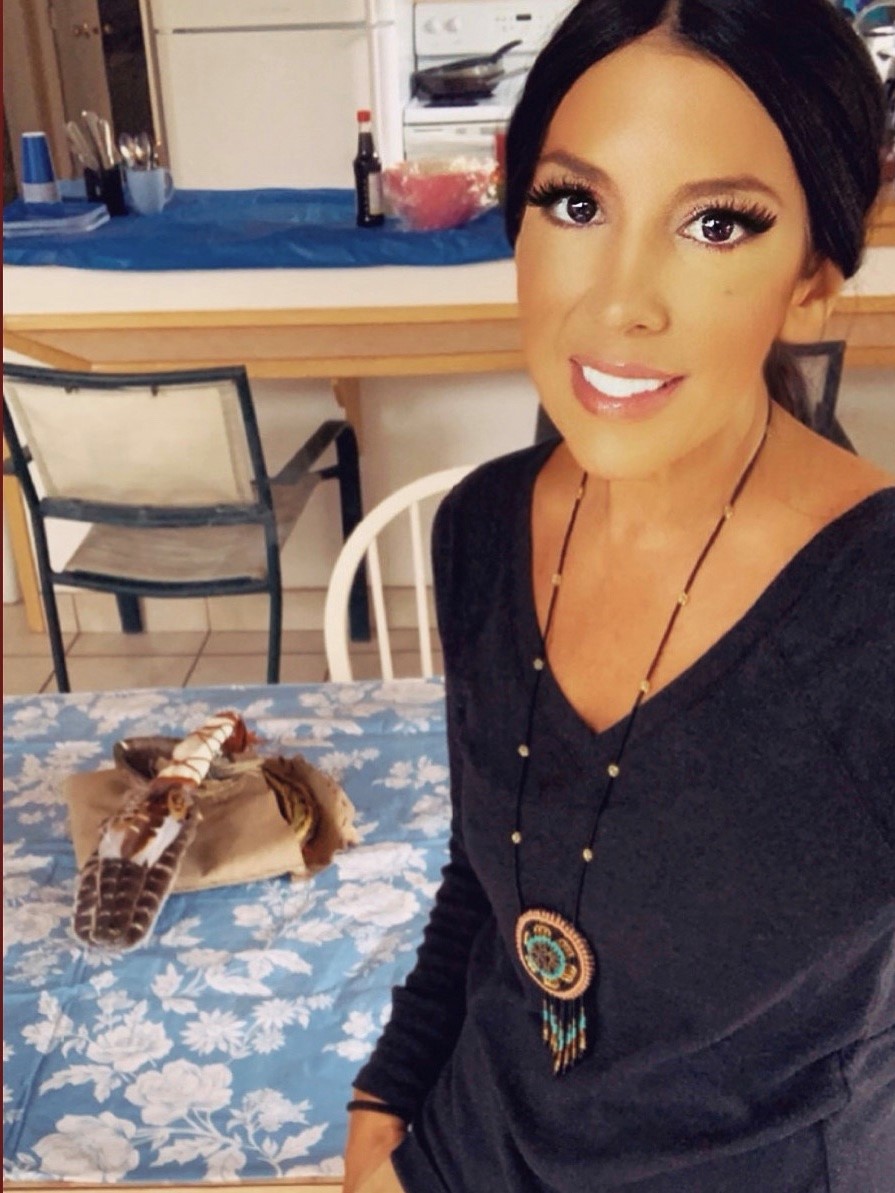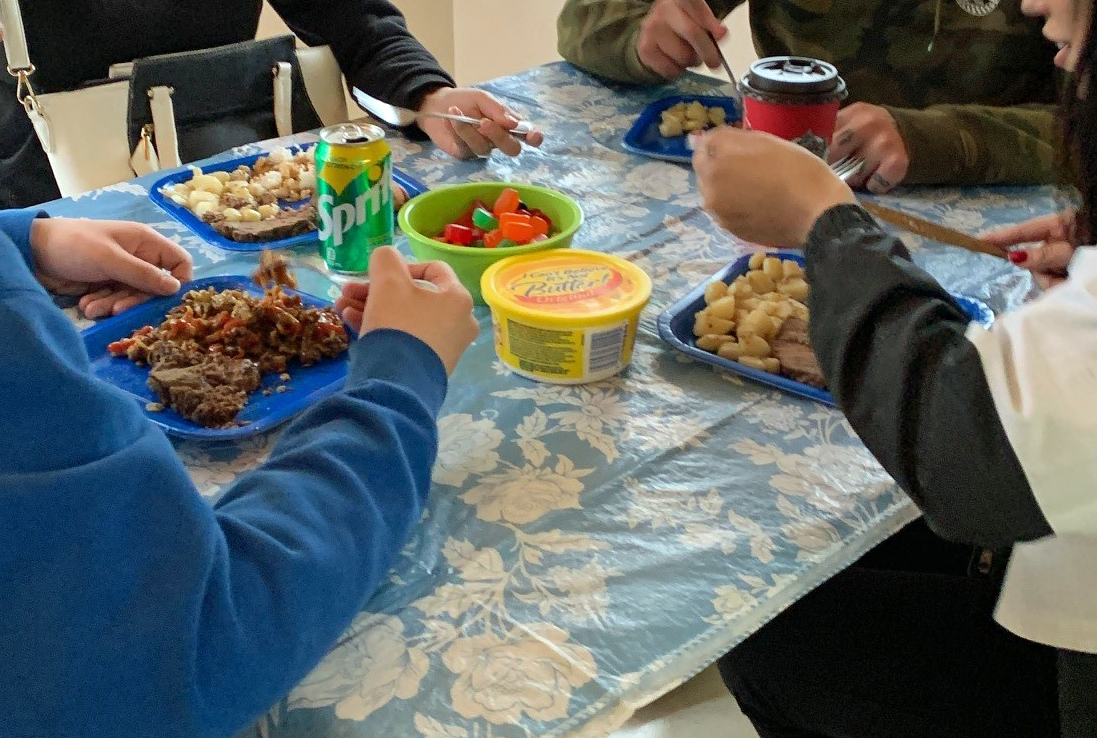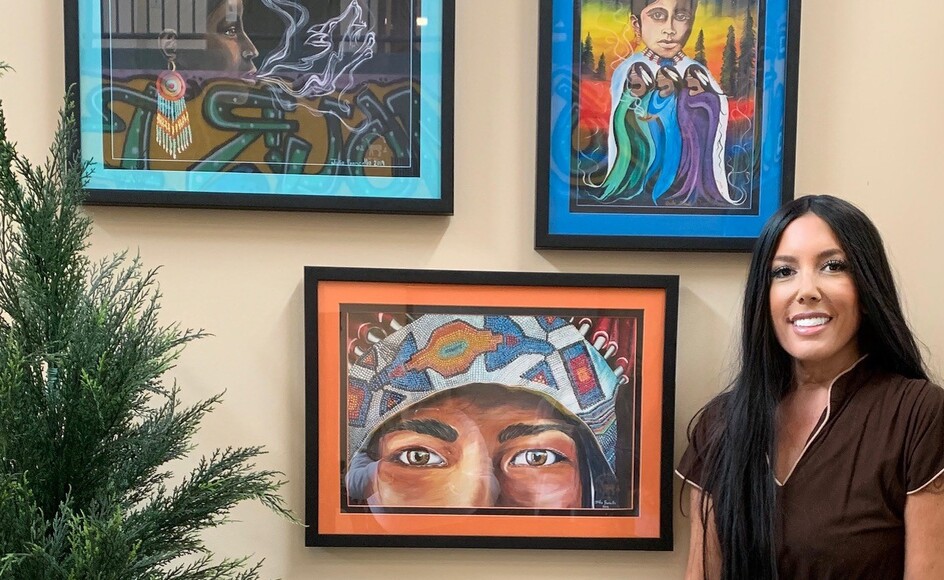A connection to culture helps create resilience.
While everyone has their own reasons for needing to develop resilience, the COVID-19 pandemic has thrust us all into similar territory. It could be argued that clinical caseworker Julie Francella’s cultural work with agency youth is more important than ever.

“Especially in times of uncertainty, it’s important to continue on with these activities in safe ways so that we can continue to provide ways for our youth to feel safe and connected to their culture, families, and communities,” said Julie.
Cultural activities are of twofold importance at our agency: both for the benefit of our Indigenous participants and to recognize and honour that our Pilot Butte campus and Regina programs are located on Treaty 4 land.
While some adjustments have been made – for example, during the smudge group, the bowl is placed in the centre of the room, and youth come up one at a time to maintain proper physical distancing – many of the activities remain the same, even if the delivery method has changed.
“We are currently working on innovative ways for youth to share cultural stories, artwork, or beading projects through a community internet portal.”
“Cultural activities provide a sense of familiarity, connection, well-being, safety, and pride among our youth,” Julie continued.
Smudging has been particularly powerful.
“When we introduce smudging … it changes the whole energy and environment in a room. You can feel people’s guards come down as if to say, “this is a safe space,” she described, noting it is particularly effective in admission meetings and during feasts.

Prior to the pandemic, Julie planned and hosted a family feast with two siblings residing at different Ranch homes, in honour of their father who passed away. The siblings made a list of all of their father’s favourite foods, and with the help of staff (unit managers and housemothers at both homes) they were able to provide all of the food favourites.
Their eight other siblings, along with their case manager travelled from Yellowknife to visit and they celebrated their father with this feast held at MacNamara House (a place for families to stay on Pilot Butte campus). Their father was traditional, and the two siblings stopped smudging after their father passed. They both wanted to start smudging again to honour their father and the feast helped them to reconnect to their family and their culture and process their grief.
When youth at Jewison were asked how they felt about smudging with Julie, they echoed her sentiments, saying it made them feel calm, safe, and at home; especially important in a time where many of the other aspects of their routines have been changed or removed altogether due to the pandemic.
”For Indigenous Peoples their culture is the essence of who they are, who they belong to, where they come from, how they relate to one another. Culture is the accumulated teachings of ancestors. It is the basis of traditions, customs, protocols, values, spirituality, ceremonies, language, ways of knowing and being, and connections to the land and the life-sustaining resources of the land. Culture permeates all aspects of life and is essential to the overall well-being of Indigenous individuals.”
“We want our youth and families to know that our agency respects and encourages culture, language, and traditions.”


